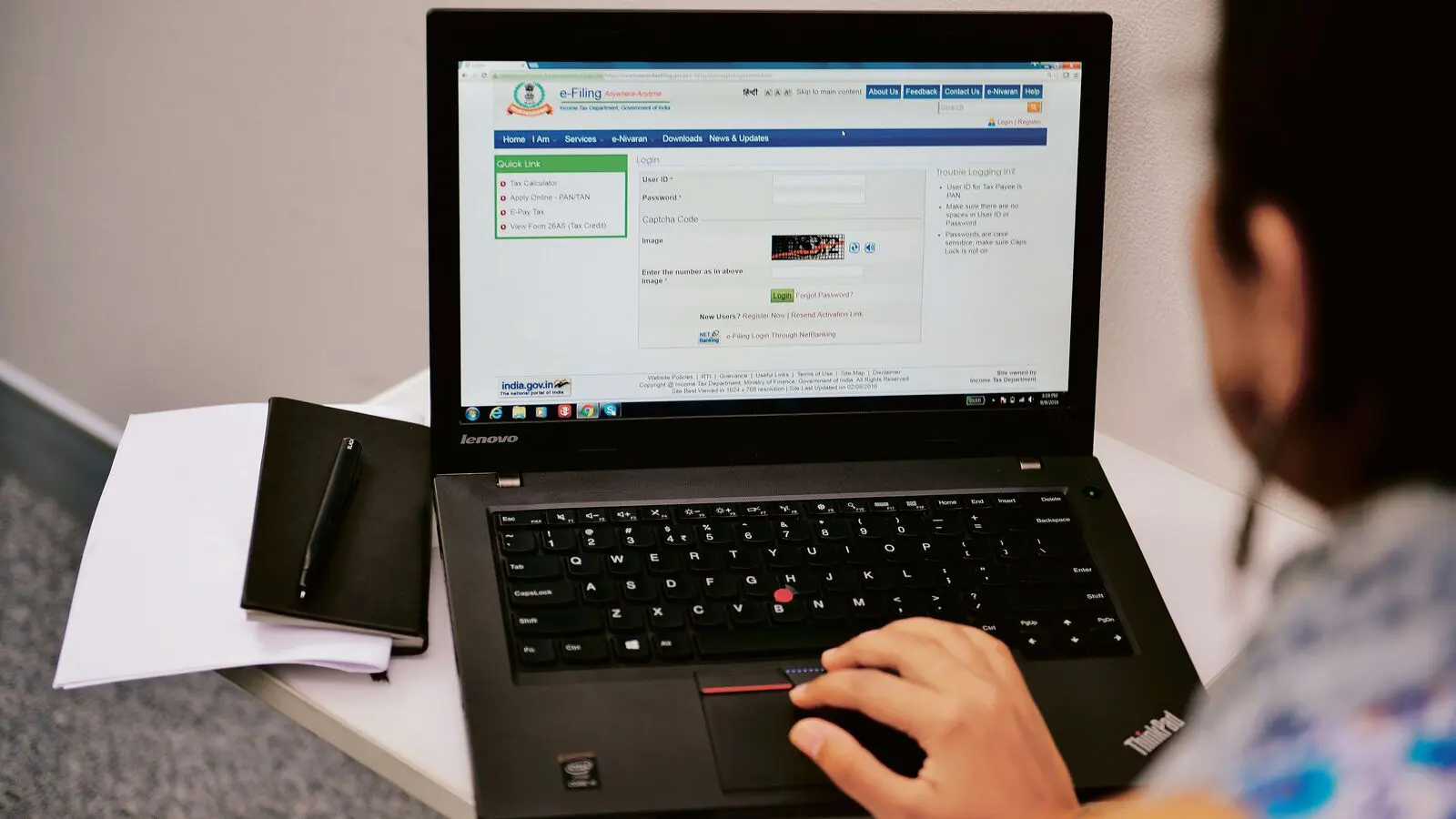New Delhi: As the deadline for filing Income Tax Returns (ITR) approaches, individuals earning above the basic exemption limit must ensure compliance. The Income Tax Department has extended the deadline to September 15 for filing ITR without penalties. To facilitate this, taxpayers can register on the e-filing portal at www.incometax.gov.in, allowing them to manage their tax profiles efficiently and access various tax-related services.
Understanding ITR Filing Requirements
Filing your Income Tax Return (ITR) is not just a legal obligation but a crucial step in maintaining your financial health. For many, especially first-time taxpayers, navigating through the process can feel daunting. If you are earning above the basic exemption limit, filing is mandatory. With the extended deadline on September 15, it’s vital to get your preparations in order.
To initiate your ITR filing, you must first register on the Income Tax Department’s e-filing portal. Regardless of whether you are a salaried individual or a businessperson, creating an account on this portal is essential. Upon registration, you’ll have access to a suite of tax-related services, streamlining the entire filing process.
Documents Needed for E-filing Registration
When heading to the e-filing portal to register, it’s beneficial to come prepared. Here’s what you need:
- **Valid and Active PAN**: Your Permanent Account Number is crucial for tax identification.
- **Valid Mobile Number**: This number will receive OTPs for verification, so ensure it is active.
- **Valid Email ID**: This is necessary for account notifications and correspondences from the Income Tax Department.
Remember, your PAN is your unique identifier in the tax system, and each PAN must be registered separately on the portal. This requirement highlights the importance of maintaining accurate records.
Step-by-Step Guide to Register on the E-filing Portal
Getting started with your e-filing registration can be accomplished by following these straightforward steps:
Step 1: Visit the e-filing portal homepage at Income Tax E-filing and click on the ‘Register’ option.
Step 2: Input your PAN under the ‘Register as a taxpayer’ option and click ‘Validate.’ If the PAN is already registered or invalid, you will receive an error message.
Step 3: On the Basic Details page, fill in all mandatory fields, including your name, date of birth, gender (if applicable), and residential status associated with your PAN, then click ‘Continue.’
Step 4: After validation of your PAN, you will be directed to the Contact Details page. Here you should input your primary mobile number, email ID, and address. Once entered, click ‘Continue.’
Step 5: You will receive two OTPs—one on your mobile number and the other on your email. Enter both OTPs and click ‘Continue.’
Step 6: Verify and edit any details if necessary, then click ‘Confirm.’
Step 7: On the Set Password page, create a password for your account and enter a personalized message. Click ‘Register.’
Step 8: If registration is successful, you will be prompted to log in. Click ‘Proceed to Login’ to access your account and begin your ITR filing.
Why Timely ITR Filing Matters
Timely filing of your ITR has multiple advantages. Apart from avoiding penalties, it helps you maintain a positive financial record, which can be beneficial for future loans, mortgage approvals, or other financial services. Moreover, filing your ITR on time opens avenues for refunds in case you have paid excess tax throughout the year.
For instance, consider Rohan, a recent graduate who navigated the e-filing process for the first time last year. He learned that by filing on time, he not only avoided penalties but also received a substantial refund that he could use for student loans. Such experiences often motivate young earners to understand the importance of maintaining a healthy financial profile through regular tax compliance.
In summary, the deadline for Income Tax Return filings is fast approaching, extending up to September 15 without penalties. The e-filing portal offers an efficient way to manage your ITR needs, and by following the outlined steps, taxpayers can ensure a smoother filing experience. As the Indian economy continues to evolve, timely compliance with tax regulations becomes even more essential for financial well-being.
💡 Bankerpedia’s Insight
The recent regulatory changes in India’s banking sector signal a pivotal shift towards more robust financial stability and consumer protection. By tightening oversight and enhancing scrutiny, regulators aim to mitigate risks that could affect both lenders and borrowers. This proactive approach fosters confidence in the banking system, promoting growth and investment. For individuals and businesses, it’s essential to stay informed about these developments, as they could affect loan rates and financial services availability. Embracing a cautious, well-researched approach to financial decisions will be vital in navigating this evolving landscape.
🤔 What Does This Mean for Me?
- Salaried Person → Job security concerns may increase; budget adjustments needed.
- Business Owner → Increased costs may reduce profit margins significantly.
- Student → Increased motivation, potential stress, and academic pressure.
- Self-employed → Increased expenses may reduce profits for self-employed individuals.
- Homemaker → Increased household budget pressure, altering shopping habits.
- Retiree / Senior Citizen → Increased living costs may strain fixed retirement income.
- Job Seeker → Increased competition for jobs, heightened skills demand.
- Farmer / Rural Citizen → Increased costs, reduced income, greater financial insecurity ahead.
📚 Research References
📲 Stay ahead in banking & finance!
Join the Bankerpedia WhatsApp Channel for instant updates, and
subscribe to our YouTube Channel for in-depth analysis and expert explainers.










